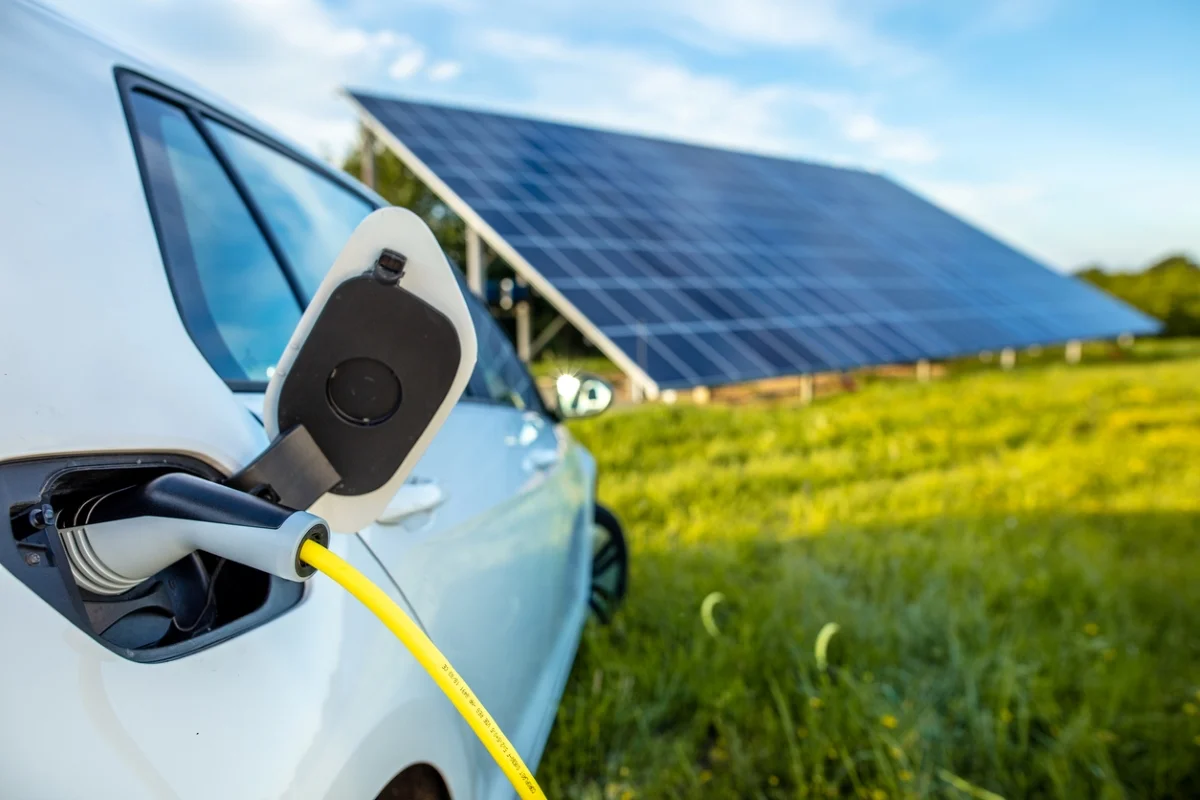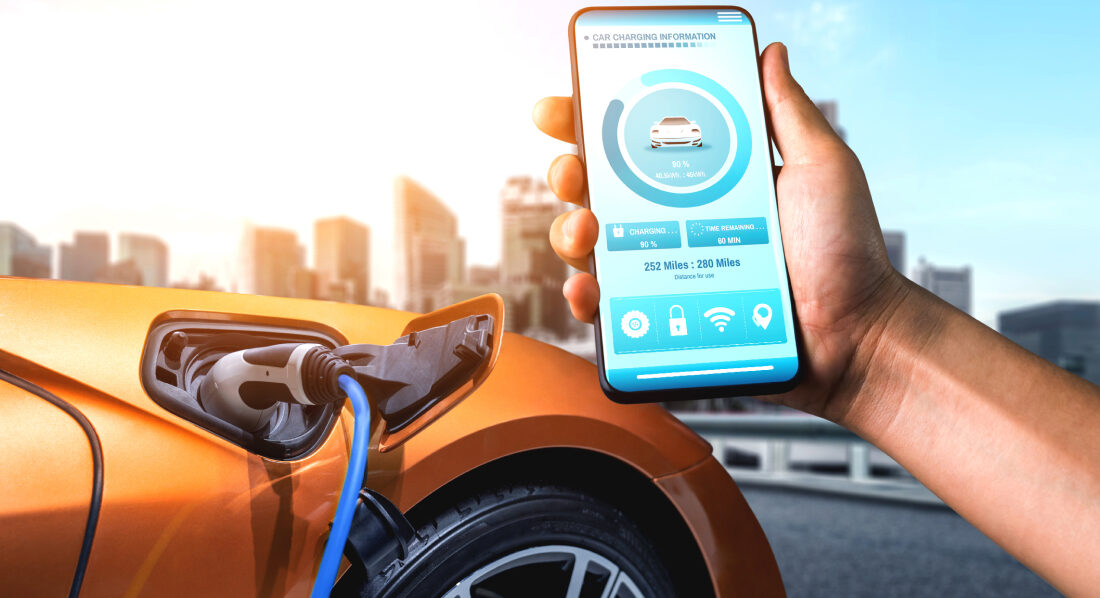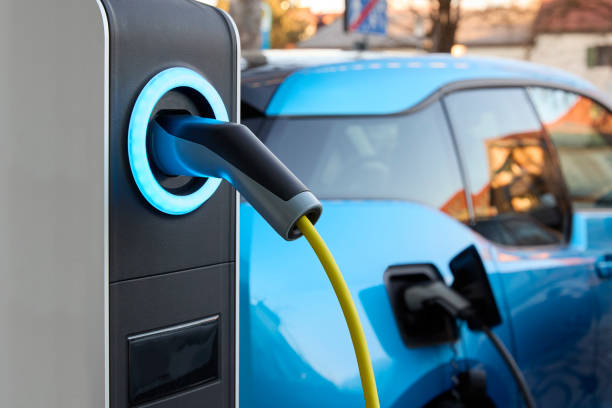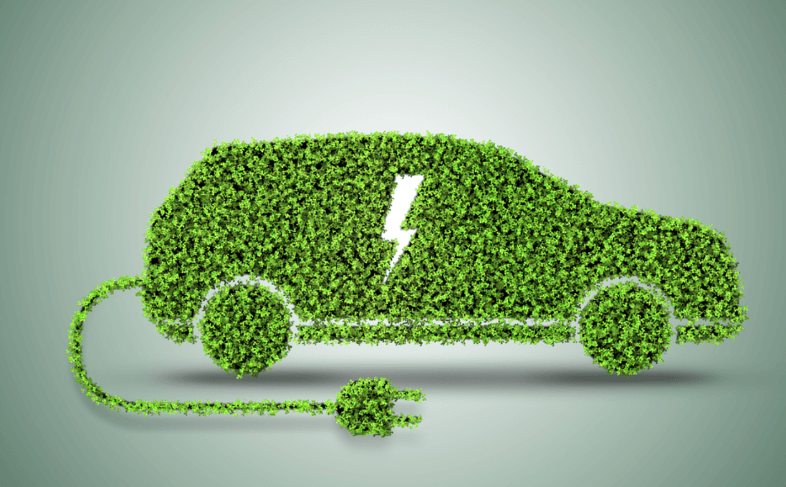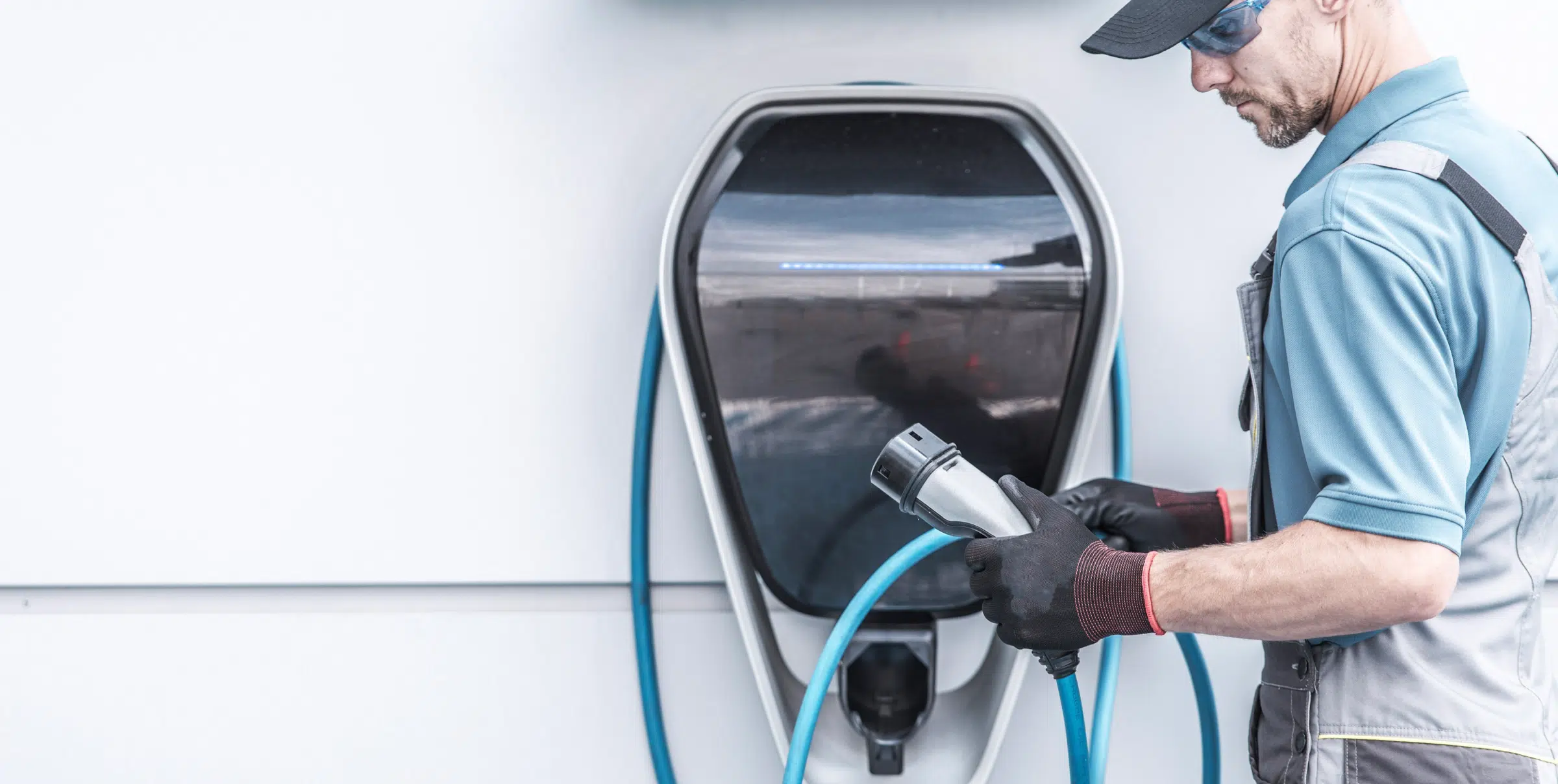- Home charging typically saves you £447 per year over charging in public
- The scheme subsidises 75% of the cost of a home recharging station
- It's only open to people who own flats, and people in rented accommodation
The Electric Vehicle Homecharge Scheme, now known as the EV Chargepoint Grant, closed to house owners on 31 March 2022. It is now only open to people who own flats, and people in rented accommodation.
The Electric Vehicle Homecharge Scheme has undergone a rebranding and is now known as the EV chargepoint grant. This grant is exclusively available for individuals who either rent or own a flat. If you fall into this category, there’s an opportunity to save on the installation costs of an EV chargepoint.
If you’re interested in understanding the cost of a charging point without the grant, we’ve developed a straightforward form. Just share a few details about your home, and we will connect you with our expert installers.
Alternatively, for those wanting to explore charging point costs without the grant, we’ve designed an easy-to-use comparison tool. By providing some basic details about your home, we’ll facilitate connecting you with our expert installers.
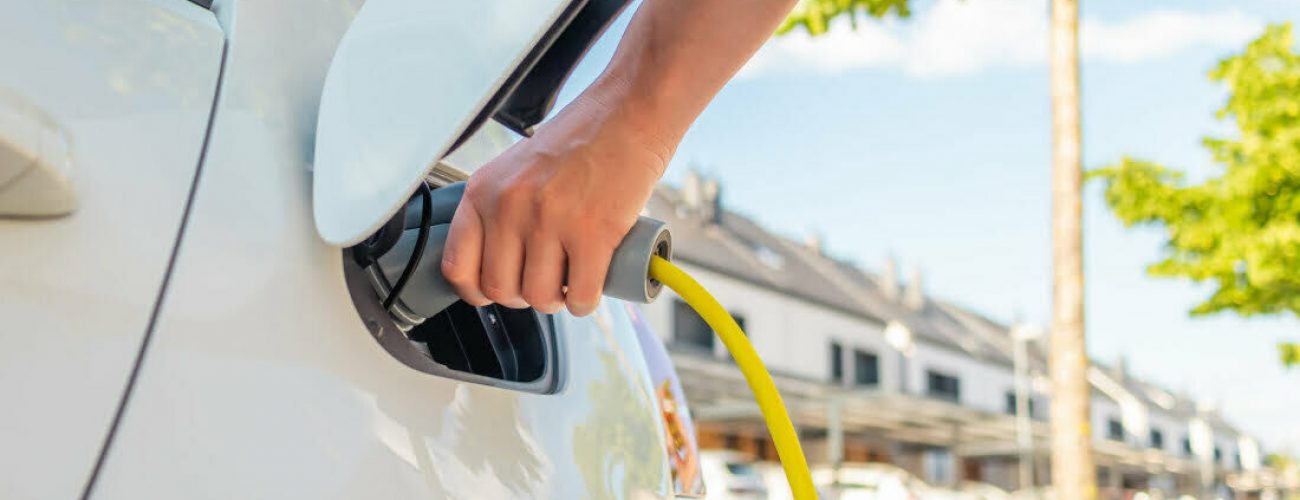
What's on this page?
What is the EV chargepoint grant?
The EV chargepoint grant, a government initiative aimed at promoting electric vehicle adoption among the public, provides a subsidy covering 75% of the expenses associated with purchasing and installing a home recharging station, capped at £350 (including VAT).
Eligibility criteria include:
– Ownership of a flat or residence in rented accommodation
– Intention to use the charger for one of the 254 vehicles listed as eligible
– Being the primary owner of the vehicle
– Verification of ownership of an eligible vehicle or confirmation of a purchase scheduled for delivery within four months of the charger’s installation date
– Availability of dedicated off-street parking at the property
Administered by the Office for Zero Emission Vehicles (OZEV), previously known as the Office for Low Emission Vehicles, this scheme was initially accessible to homeowners and is now extended to a different segment of the market. OZEV’s rationale for introducing the grant is rooted in the understanding that “most plug-in vehicle owners will carry out the largest proportion of their charging at home.”
If you want to see which charger would be best for you, just check out our analysis of the best electric vehicle home chargers.
How does it work?
Once you’ve made sure you qualify for the grant, it’s time to decide which of the best electric vehicle chargers you want.
Your installer will process the government’s subsidy on your behalf, leaving you with only the discounted rate to pay.
Subsequently, you can reap the advantages associated with a home charger, primarily resulting in an annual savings of around £447 compared to charging in public.
We explain more of these benefits on our Electric Vehicle Statistics page.
What are the types of OZEV grants available?
We’ve discussed the fundamentals of the EV chargepoint grant. However, for companies and charities, there’s additional good news—another grant tailored specifically for organizations is still accessible.
Here’s a few listed below, but you can also to our page to find out about all the current EV charging point grants.
The Workplace Charging Scheme (WCS)
The WCS is designed to assist organizations looking to offer complimentary charging options to their staff who drive electric vehicles.
If your eligibility is confirmed, the government can contribute 75% of your charging point expenses, up to a maximum of £350.
While the WCS shares similarities with the EVHS, there is a key distinction: the scheme covers a maximum of 40 chargers across all the organization’s sites.
To qualify for this program, your organization must:
1. Be located in Britain (England, Wales, Scotland, or Northern Ireland)
2. Be a registered charity, business, or part of the public sector
3. Be a public authority or a group that has received less than €200,000 (£180,800) of public support in the past three fiscal years
4. Provide a rationale for the need for charging points or outline plans to encourage or mandate staff to transition to electric vehicles
5. Have access to dedicated off-street parking
6. Either own the property or obtain permission from the owner/s for the installation of charging points.
How much could the EV chargepoint grant save me?
The EV chargepoint grant offers the potential to reduce your expenses by 75% when acquiring and installing a home charger, with a maximum saving of £350.
Additionally, opting for an electric vehicle through this scheme could lead to even greater savings. By making the switch from petrol to electric, our calculations indicate that you can now trim down your annual fuel costs by £715.
How can I qualify for OZEV’s EV chargepoint grant?
To qualify for an EV chargepoint grant, you must meet one of the following criteria:
1. Own an eligible new or second-hand electric vehicle and have not applied for any previous chargepoint schemes.
2. Have ordered an eligible vehicle and can provide proof of the order.
3. Lease an eligible vehicle for a minimum duration of six months.
4. Have been assigned an eligible company vehicle for a minimum of six months.
5. Have been designated by your employer as the primary user of an eligible vehicle for at least six months.
If you reside in a flat, whether owned or rented, simply reach out to one of the companies listed as approved installers.
Your chosen installer will handle the EVHS grant application on your behalf, ensuring that the savings are applied to your overall costs.
Then you won’t have to worry as much about running out of charge because of your electric vehicle’s range, because you’ll have a charger at home.
How do I claim it for my business?
You can’t claim the EV chargepoint grant for your business, but you can apply for a WCS grant.
The application form is available online – but before you fill it in, check the dedicated WCS section above to make sure you qualify.
Which vehicles are compatible with the Electric Vehicle Homecharge Scheme?
The EVHS currently encompasses 254 qualifying vehicles, providing a broad range of options for those considering the purchase of an eligible vehicle.
The list includes a diverse selection of well-known car brands, such as Citroen, Chevrolet, Porsche, Peugeot, Volvo, Volkswagen, and many more. Virtually any major manufacturer you can think of likely offers an eligible vehicle within this program.
Furthermore, you have the option to explore offerings from companies specializing in the production of electric vehicles, such as BD and BYD.
Has the EV chargepoint grant been a success?
The EV chargepoint grant – and its previous guise, the EVHS – have been used to discount the installation of 236,697 chargers, according to the latest government data.
Over the allocated time, the scheme has received funding totaling £104.5 million, with £31 million, representing 30% of the total, distributed in the past 12 months.
The scheme has garnered the most popularity in the South East and East of England, boasting 45,345 and 26,216 EV chargepoint grant devices, respectively. The South East currently boasts the highest concentration, with 1,230 EV chargepoint grant devices per 100,000 households, equating to one for every 81 homes.
Despite its positive impact, the scheme falls short in meeting the overall demand. With 40.2 million registered cars in the UK, the EV chargepoint grant has been utilized for only 0.6% of the vehicles. Furthermore, the grant has been claimed for just 13% of the 1.8 million electric vehicles currently registered in the UK, indicating either a lack of eligibility among customers or a lack of awareness about the available grant.
The truth remains that it’s not the cost of an electric car charger (£1,000 on average, without the grant) that puts off consumers – it’s the cost of the car.
The government suddenly ended its plug-in grant in June 2022, effectively making electric vehicles £1,500 more expensive in one fell swoop.
The average non-luxury electric car now costs £33,000, which is still out of many people’s price range.
Will there be anything after the EV chargepoint grant?
The government’s commitment to financing personal electric vehicle acquisitions is evidently diminishing, evident in the exclusion of homeowners from the EV chargepoint grant and the discontinuation of the plug-in grant.
In the government’s Net Zero Strategy, published in October 2021, £620 million of new funding was dedicated towards “zero emission vehicle grants and EV infrastructure.”
We have requested information from the government regarding the date, duration, and value of these new grants. However, a spokesperson declined to provide specific details, stating only that there would be “more details in due course.”
We will update this page once the government discloses its plans.
If the government is genuinely committed to promoting electric vehicles, now presents an opportune moment to introduce a substantial discount, similar to France and Germany, which provide consumers with €10,000 (£8,500) and €9,000 (£7,700) grants, respectively.
In September 2021, amid the petrol crisis, the demand for electric vehicles experienced a significant surge, with a record 32,721 purely electric cars registered during the month.
That figure was 49% higher than September 2020 – in fact, it was only 5,000 shy of the total number for 2020, according to the Society of Motor Manufacturers and Traders (SMMT).
And over the past 12 months, the number of electric cars in the UK has risen by more than it did in the previous four years – combined.
Summary
If you’re considering installing a charging point at your apartment or rented property, reaching out to an eligible installer could result in a savings of £350 for the entire process.
For organizations aiming to transition their staff or fleet to electric vehicles, the Workplace Charging Scheme offers potential savings of up to £350 on as many as 40 charging stations.
Both initiatives present clear benefits for both individuals and the environment, making them advantageous options that should be utilized whenever possible.
Get FREE EV Charger Quotes
Find out how much an EV Charger would cost you
Complete A Short Form – Receive Free Quotes – Compare & Save
Get FREE EV Charger Quotes
Find out how much an EV Charger would cost you
Complete A Short Form – Receive Free Quotes – Compare & Save


